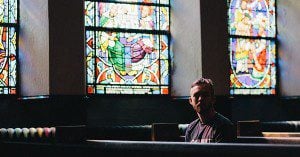Beating a Dead Horse? More about Protestantism’s Decline
*If you want to comment here, make your comment relatively brief (no more than 100 words, please), civil and respectful in language, not hostile or argumentative, and do not include any links or photos. Make sure your comment is on topic and do not attempt to misuse my blog to promote your own alternative belief system.*
This is a follow up to my immediately preceding blog post about the apparent decline of Protestantism’s influence in Europe and America (especially America). I understand that I might be perceived now as beating a dead horse. Does this subject deserve another post? Well, maybe not, but, nevertheless, here goes.
I talked about the virtual absence of Protestants in popular culture. Many movies include a pastor, a preacher, a church, a worship service, a person or family that is Christian in some obvious way. Rarely, seldom are these Protestants. Almost always they are either Jewish or Catholic. I can think of one or two where the main characters are very overtly Eastern Orthodox (e.g., “My Big, Fat Greek Wedding”). There are rare exceptions such as “First Reformed” and “The Apostle.” But in both of those cases, as in most such, the Protestants are extremely flawed and, seemingly, BECAUSE they are Protestants (of whatever flavor).
The same is true in television. Think, for example, of “Madam Secretary.” The husband/father is a professor of Catholic ethics at a Catholic university and even though they rarely go to church (so far as viewers can tell), especially his Catholic faith is often mentioned as he wrestles with being a government agent occasionally involved in something like “black ops.” But where is any television show where the family or even one main character is overtly and obviously Protestant?
I am setting aside in all of this the movies available on “PureFlix” and similar Christian made movies and programs; I’m only talking in these two blog essays about American popular culture.
So why this dearth of Protestant portrayals in the media and culture generally?
My suggestion is that Protestants have done this to ourselves. Overall and in general, we are boring. There are exceptions, of course. But when we are not boring we are too “far out” (I am trying to avoid the word “weird”) for secular people who create and influence culture to understand or reproduce even in fictional form. Think, for example, of Steve Martin and the movie “Leap of Faith.” Nothing about it was authentic of Protestant revivalism.
Why are we (speaking generally) boring? Well, for the most part, we have eschewed “the arts”—produced by us—and confined ourselves to what one of my colleagues described as “four bare walls and a sermon” (her description of a typical Reformed church—her own tradition).
Perhaps this is why most portrayals of Protestants in popular culture focus on the minority manifestations of Protestantism—African-American worship, Pentecostalism, Old Order Mennonites and Amish, etc. But the makers of these portrayals in popular culture rarely get any of it right; the portrayals are inauthentic. The only popular culture portrayal of Pentecostalism I have seen, experienced, was the movie “The Apostle.” That movie really moved me because it was the first time I saw my tradition (of childhood and youth) portrayed authentically in a “Hollywood film.” Unfortunately, of course, the main character “Sonny,” portrayed by actor Robert Duvall, was an extremely flawed evangelist and pastor. But he had a “good side” once he left behind the mega-church and immersed himself in ministry among the “disinherited.”
What can Protestants do to overcome this boring problem? Here’s one little event that might serve as a starter for imagination and creativity. For about eighteen months, before moving, I was a member of a relatively boring Baptist church. I actually liked it, but, for the most part, it was boring. Then the new pastor, a woman, decided to make it not boring. She talked about church as fun and handed out tee shirts that said “Got Church?” And many of us joined a neighborhood parade singing, wearing our tee shirts, and even (some) dancing or skipping (as many others were doing including gubernatorial candidate Jesse Ventura!).
I grew up in a “sort of Protestant” Pentecostal church that was absolutely NOT boring. However, I know now that trying to portray THAT on visual media would be just almost impossible without it appearing weird. You had to be there and be involved to “get it.”
Protestants need to incorporate beautiful, colorful pageantry into worship along with powerful but thoughtful preaching and enthusiastic singing. We need to get out of our “four bare walls and a sermon” into the communities and have worship in public parks. We need to use our bodies as we worship, kneeling, raising our arms, swaying, dancing, bowing, clapping, crying, acting like we mean what we say and sing and believe and like it really matters. We need to completely move away from the “club” mentality or appearance and get excited about visitors, people who are different from us, and just overtly ENJOY being Christians, knowing Jesus and worshiping and having fellowship. For the most part, with many exceptions, we are deadly dull. We have to change.













